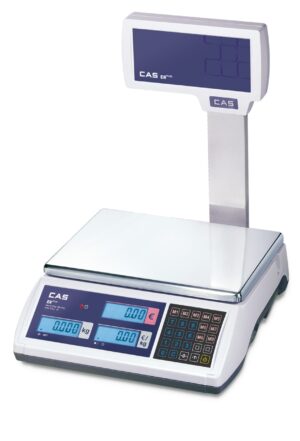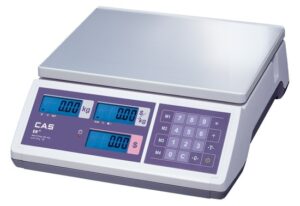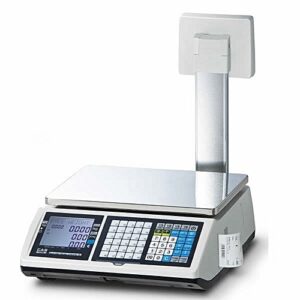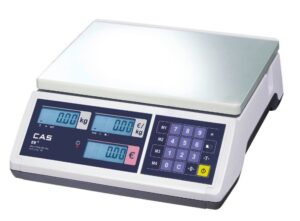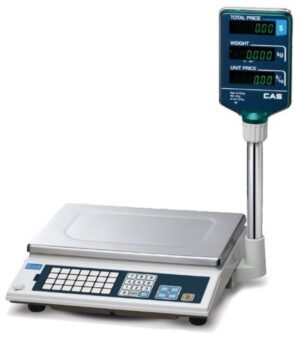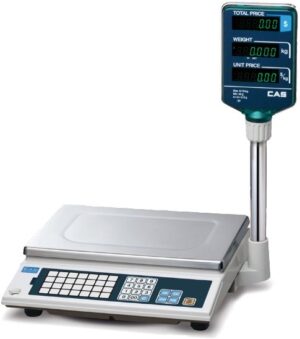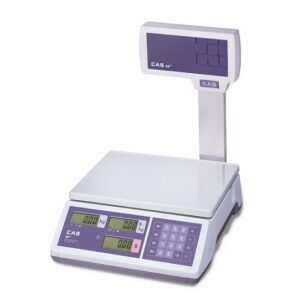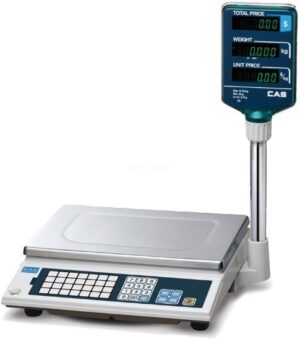Price Computing Scales
Showing all 9 results
- Add to cart
-
Add to cart
CAS ER JR Price Computing Scale
$472.00 -
Add to cart
CAS CT100 Ticket Printing Scale
$1,748.00 -
Add to cart
CAS EB Price Computing Scale
$1,287.00 -
Know More
CAS ER JUNIOR 15KG – Price Computing Scale
Call for Price -
Know More
CAS AP-1 15KG – Price Computing Scale wit...
Call for Price -
Know More
CAS AP-1 Plus 30kg Scale with Pole Display
Call for Price -
Know More
CAS ER Junioi 15kg Price Computing Scaler with ...
Call for Price -
Save 24%
CAS-AP1 Out of stock
Read moreCAS AP-1 Plus Price Computing Scale
Original price was: $945.00.$718.00Current price is: $718.00. Save 24%
What is Price Computing Weighing Scale?
Price computing scales are a type of electronic weighing equipment commonly used in retail environments to determine the price of items based on their weight and a predetermined unit price. These scales are essential in grocery stores, supermarkets, delis, produce markets, and other retail businesses where products are sold by weight.
The primary purpose of price computing scales is to streamline the checkout process and accurately calculate the cost of items that are sold by weight. They provide convenience for both the customer and the retailer by eliminating the need for manual calculations and ensuring fair and accurate pricing.
Here’s how price computing scales typically work:
Weighing: When a product is placed on the scale’s platform, the scale measures the weight of the item. The weight is displayed on a digital screen.
Unit Price: The retailer pre-programs the scale with the unit price for the specific item being weighed. This unit price could be per pound, kilogram, ounce, or any other unit of measurement.
Price Calculation: The scale multiplies the weight of the item by the unit price to calculate the total price. The calculated price is then displayed to the customer.
Tare Function: Many price computing scales have a tare function, which allows the scale to subtract the weight of any container or packaging material. This ensures that only the actual weight of the product is used to determine the price.
Additional Features: Price computing scales may have various additional features, such as memory functions to store frequently used unit prices, connectivity options for linking to a point-of-sale (POS) system, and barcode scanning capabilities.
Using price computing scales not only saves time and reduces errors at the checkout counter but also provides transparency to customers regarding the price they are paying based on the actual weight of the product they are purchasing.
It’s essential for retailers to adhere to regulations and ensure that their price computing scales are calibrated accurately to maintain fair trade practices and uphold customer trust. Regular maintenance and calibration of these scales are necessary to ensure their accuracy and compliance with legal requirements.


